GWP's activities influence water governance, leading to impact in terms of enhanced quality of life for populations and increased water-related investment.
GWP's activities influence water governance, leading to impact in terms of enhanced quality of life for populations and increased water-related investment.

Recognising the value of rainwater, greywater and recycled wastewater as a resource rather than a waste product, GWP Mediterranean’s Non-Conventional Water Resources (NCWR) Programme has proven to be a cost effective method of increasing local water availability and climate resilience in water scarce Mediterranean islands.
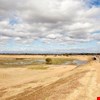
In Malawi, GWP provided long-term backing to the adoption of an Integrated Water Resources Management (IWRM) approach to water management. This support included the development and implementation of a national IWRM and Water Efficiency (WE) plan to guide Malawi towards increased water security.
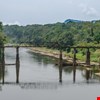
GWP supported Cameroon in creating its first National Adaptation Plan for Climate Change (NAPCC), a strategic intervention comprised of 20 adaptation programmes.
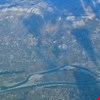
The Drin River is a complex transboundary water system and a strategic developmental resource for its riparian states. The Drin Dialogue has been instrumental in establishing transboundary cooperation to foster a basin-wide effort towards sustainable and integrated water resources management. GWP supported the establishment of this collaborative platform and contributed to leveraging 5.5M USD for implementing the Drin Memorandum of Understanding and its Action Plan.
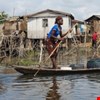
As part of the Benin government’s programme to develop an IWRM plan, it tasked GWP with mobilising stakeholders to define a vision and roadmap for improving water resources management. The IWRM plan’s development was facilitated by GWP Benin, with support from GWP technical and financial partners.
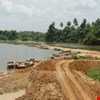
As the world’s cities experience rapid growth, the global construction industry has been expanding exponentially. As a result, the demand for and price of river sand, which is the favoured natural material to produce mortar and concrete, has also increased. In Sri Lanka in particular, demand has been rising since the early 1990s, and has taken a notable leap since the 2004 tsunami. GWP Sri Lanka and its partners successfully contributed to a better regulated river sand mining sector.